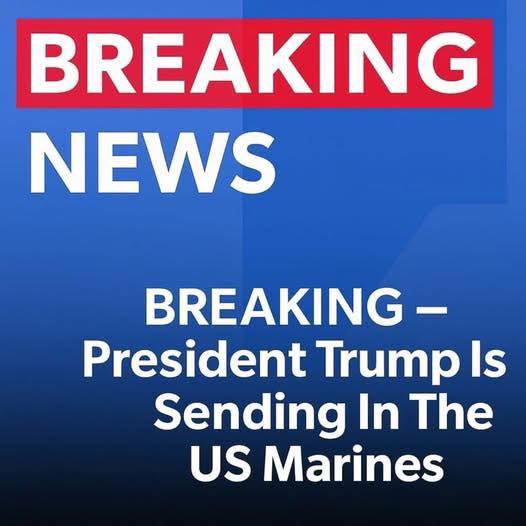Military Deployment to Florida for ICE Support Sparks National Debate
In a development that has ignited intense political and public discourse, the United States Department of Defense has confirmed the deployment of 200 U.S. Marines to Florida in support of Immigration and Customs Enforcement (ICE) operations. While the Pentagon has clarified that these troops will operate strictly in non-combat, administrative roles, the decision has triggered widespread concern among civil rights advocates, immigration reform organizations, and several members of Congress.
Background and Scope of the Deployment
The deployment is part of a broader federal initiative aimed at bolstering ICE’s operational capacity in key regions experiencing high levels of immigration activity—namely Florida, Texas, and Louisiana. These states have seen a marked increase in immigration enforcement actions under President Donald Trump’s second term, and federal authorities argue that the additional manpower is needed to address logistical challenges and system inefficiencies.
According to a statement from the Department of Defense, the Marines will not be involved in enforcement activities such as arrests, patrols, or interactions with detainees. Instead, they will assist ICE personnel with administrative support tasks, including transportation logistics, facility oversight, and the processing of data related to detainee intake and management.
“The Marines are being deployed in a strictly non-combat capacity,” said a Pentagon spokesperson during a recent press briefing. “They are not there to enforce immigration law but to provide operational support that will allow ICE agents to focus on their core enforcement responsibilities.”
A Controversial Symbol
Despite repeated assurances from the federal government that the Marines will not engage in law enforcement duties, the optics of deploying active-duty military personnel to ICE facilities have drawn sharp criticism from a range of stakeholders. Civil liberties organizations warn that the move risks further blurring the lines between military and civilian law enforcement, potentially eroding public trust in both institutions.
The American Civil Liberties Union (ACLU) issued a statement labeling the deployment “deeply concerning,” arguing that the mere presence of uniformed Marines—even in support roles—could be perceived as intimidating by immigrant communities. “This blurs the line between civil and military jurisdiction in a way that undermines democratic norms,” the organization said. “It sends a chilling message to individuals who may already feel vulnerable or targeted.”
Political Reactions Split Along Party Lines
Predictably, reaction to the deployment has largely fallen along partisan lines.
Democratic lawmakers have been quick to condemn the decision. Senator Alex Padilla (D-CA), a vocal proponent of immigration reform, took to social media to express his concerns: “We should not be militarizing immigration. The presence of Marines, even in support roles, sends the wrong message about America’s values.”
Representative Pramila Jayapal (D-WA), co-chair of the Congressional Progressive Caucus, echoed these concerns, stating, “This is a misuse of our military and a dangerous precedent. The government should be investing in community-based immigration services, not expanding a militarized approach to immigration enforcement.”
On the other hand, many Republican lawmakers have welcomed the move as a pragmatic response to operational needs at the southern border and within ICE detention centers. Representative Brian Mast (R-FL), whose district includes several affected areas in Florida, praised the deployment as a “smart and lawful decision.”
“Our immigration system is under enormous strain,” Mast said. “This is not about militarizing law enforcement—it’s about using available resources wisely. The Marines are supporting ICE personnel in non-law enforcement roles, which ultimately improves overall efficiency and safety.”
